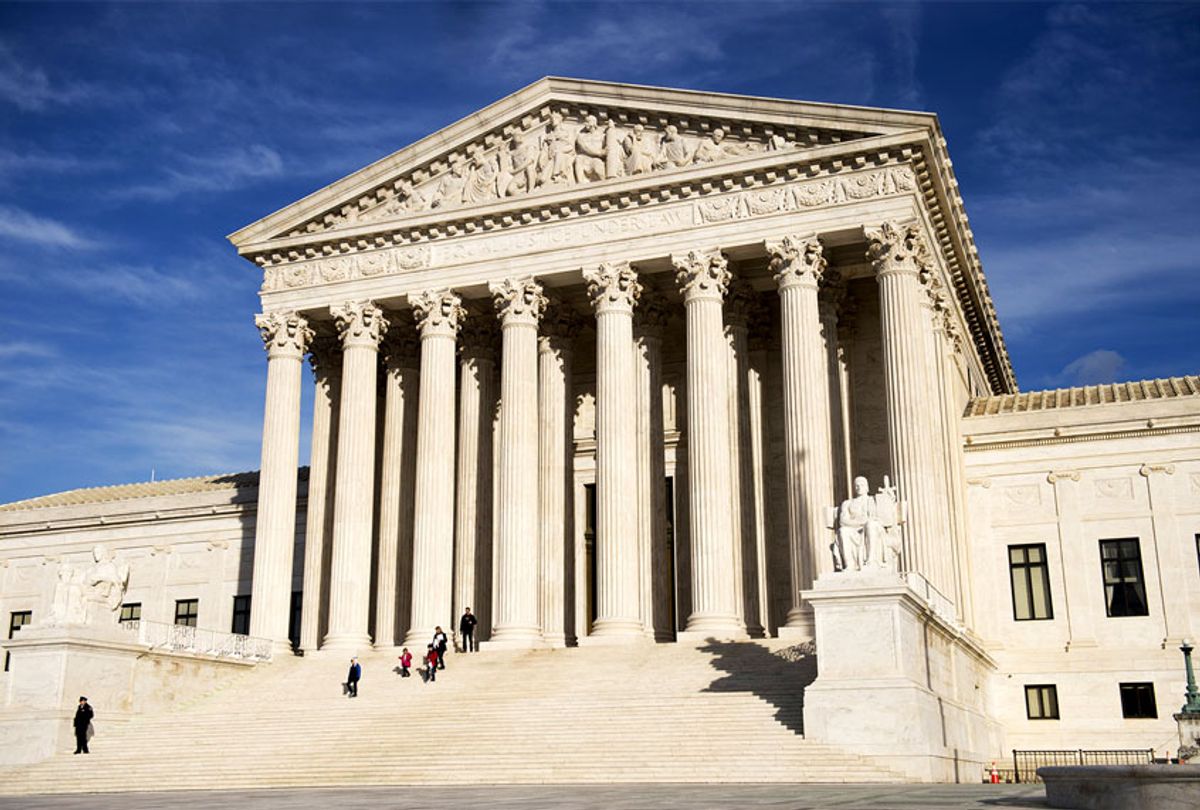The Supreme Court on Monday struck down abortion restrictions in Louisiana as Chief Justice John Roberts aligned himself with the high court's four liberal justices to uphold precedent.
The 5-4 ruling rejected Louisiana's law requiring abortion providers to have admitting privileges at nearby hospitals. Two Louisiana doctors and a medical clinic that sued to get the law overturned argued it would have left only one doctor at a single clinic to provide abortion services for nearly 10,000 women per year.
But there was no legitimate legal reason for this case to be in front of the Supreme Court in the first place. In the 2016 Whole Woman's Health vs. Hellerstedt decision, the court already ruled against an identical law in Texas. In that case, the Lone Star State argued in favor of a series of regulations applied to abortion clinics, which had no basis in medical science and were obvious pretenses to force clinics to shut down.
Justice Stephen Breyer wrote the majority opinion striking down the Texas law, arguing sensibly that prior to the frivolous regulations, "abortion was an extremely safe procedure with very low rates of complications and virtually no deaths," and there were "no significant health-related problem for the new law to cure." Because the state did not establish that the law served the state interest in protecting women's health, the law constituted an undue burden on women's right to abortion.
Justice Ruth Bader Ginsburg concurred, writing: "When a state severely limits access to safe and legal procedures, women in desperate circumstances may resort to unlicensed rogue practitioners." Thus, such regulations put women at risk.
So what changed? Nothing about the illegal restrictions that Louisiana adopted, which were cribbed directly from the Texas law. No, what changed was the presence of one Justice Brett Kavanaugh, accused sexual assailant and world-class champion in the sport of self-pity. The majority opinion in Whole Woman's Health was due to the presence of Justice Anthony Kennedy, who is no fan of abortion but had enough honesty and self-regard to know that the Texas law was disingenuous nonsense. However, he retired and was replaced by Kavanaugh, who anti-choice activists were betting was not burdened by concerns about good faith or fair legal procedure.
Both Kavanaugh and Trump-appointed Justice Neil Gorsuch voted in favor of the restrictions. Kavanaugh's vote came in spite of the repeated insistence of Sen. Susan Collins, R-Maine, that he viewed abortion rights as "settled law."
It marks the third high-profile case this term in which at least one of the court's conservative justices sided with the liberal minority. Roberts similarly joined the liberals to reject President Donald Trump's attempt to dismantle DACA. The chief justice and Gorsuch both sided with the liberal justices to rule that gay and transgender workers are protected from employment discrimination by the Civil Rights Act.
The rulings drew criticism from Trump. The Department of Justice backed the losing side in both cases, as well as the abortion ruling.
Roberts wrote in a concurrent opinion that the Louisiana law was effectively the same as the Texas law already struck down by the high court.
"The legal doctrine of stare decisis requires us, absent special circumstances, to treat like cases alike," he said. "The Louisiana law imposes a burden on access to abortion just as severe as that imposed by the Texas law, for the same reasons. Therefore, Louisiana's law cannot stand under our precedents . . . The result in this case is controlled by our decision four years ago invalidating a nearly identical Texas law."
The 2016 ruling said that Texas' admitting-privilege requirement "provides few, if any, health benefits for women, poses a substantial obstacle to women seeking abortions and constitutes an 'undue burden' on their constitutional right to do so."
Roberts did not join the court's four liberals in the majority opinion. Justice Stephen Breyer wrote in the majority opinion that the law "imposes an undue burden on a woman's constitutional right to choose to have an abortion."
"The impact of those increases would be magnified by Louisiana's requirement that every woman undergo an ultrasound and receive," he added. "Both experts and laypersons testified that the burdens of this increased travel would fall disproportionately on poor women, who are least able to absorb them."
Despite the ruling, abortion advocates expect the court to chip away at reproductive rights.
"We're relieved that the Louisiana law has been blocked today but we're concerned about tomorrow. With this win, the clinics in Louisiana can stay open to serve the one million women of reproductive age in the state," Nancy Northup, the president and CEO of the Center for Reproductive Rights, said in a statement. "But the court's decision could embolden states to pass even more restrictive laws when clarity is needed if abortion rights are to be protected."
"Unfortunately, the court's ruling today will not stop those hell-bent on banning abortion. We will be back in court tomorrow and will continue to fight state by state, law by law to protect our constitutional right to abortion," Northup continued. "But we shouldn't have to keep playing whack-a-mole. It's time for Congress to pass the Women's Health Protection Act, a federal bill that would ensure the promise of Roe v. Wade is realized in every state for every person."



Shares